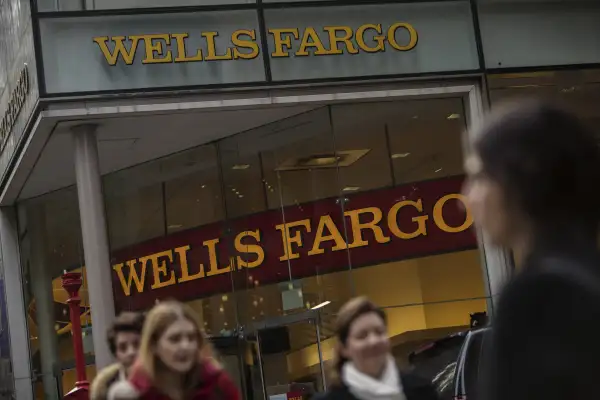Wells Fargo Has Yet Another Scandal Brewing, This Time Over Car Loans

Wells Fargo is in the hot seat again.
The jumbo bank, which is still recovering from a massive fake account scandal that broke less than a year ago, is now under fire for its auto loan practices.
The Federal Reserve Bank of San Francisco has opened an investigation into the bank’s policies after Wells Fargo allegedly failed to issue refunds on specialized policies when people paid off their auto loans early, according to the New York Times, which broke the news.
That probe follows the bank's disclosure last month that at least 800,000 customers, over about a four-year period, were charged for a different type of auto insurance they didn’t need. After an internal investigation, Wells Fargo said it found that in issuing auto loans, the bank had purchased (and charged customers for) collision insurance, even when customers already had it in place. Wells Fargo said at the time that it planned to start issuing about $80 million in refunds and account adjustments in August.
The San Francisco Fed's current reported investigation centers around guaranteed auto protection insurance, known as GAP. Because a car’s value starts to deteriorate the moment you drive it off the lot, car dealers and lenders often push customers to get GAP insurance to cover potential shortfalls when the value of the car falls below than the loan amount still owed. This type of policy typically costs between $500 and $700, according to consumer group United Policyholders.
But if you pay back the loan early, you should be entitled to a refund of the remaining insurance—and, indeed, at least nine states require banks to do so, the Times notes. That didn't always happen at Wells Fargo, according to the Times report.
Wells Fargo alluded to the issue on Friday during its earnings report, saying that it had “identified certain issues related to the unused portion of guaranteed auto protection waiver or insurance agreements.” It noted that these issues could lead to investigations or examinations from federal, state and/or local government agencies, as well as litigation. The bank did not expand upon the scope and duration of the issue, and did not immediately respond on Tuesday to a request for comment.
The recent issues with the bank’s auto lending policies follow the ongoing litigation and fallout from the scandal opened millions of accounts without customers' authorization. Last month, a judge granted preliminary approval for a $142 million national class action settlement for the affected customers.
And the Consumer Financial Protection Bureau recently released a long-awaited rule that advocates say will cut down on misbehavior like that seen at Wells Fargo.
Announced in early July and slated to apply to contracts signed after March 2018, that rule prohibits major financial institutions—a group that includes banks, credit card companies, student lenders, payday lenders, debt collectors, and credit reporting companies—from imposing any contractual fine print that would stop consumers from banning together to bring a class action lawsuit.
Arbitration clauses are commonplace in the financial industry: About three-fourths of banks analyzed by Pew Charitable Trusts, for instance, had mandatory arbitration agreements in place. These mean customers have no recourse but to bring any disputes to private, arbitration panels. In general, that keeps many of the details shrouded in secrecy—as consumer advocates say happened in the case of the Wells Fargo account fraud scandal.
Republicans in Congress have attempted to halt the arbitration rule, but so far, no legislation has progressed far enough to derail the new protections.